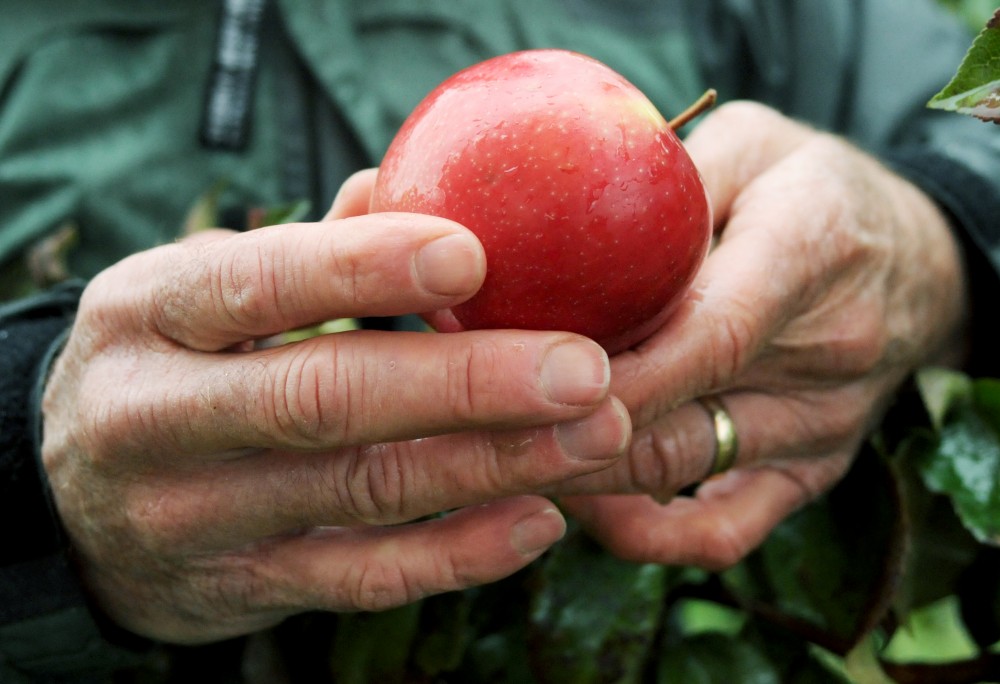Although Nov. 7 marks the end of the University of MinnesotaâÄôs patent on the Honeycrisp apple, horticulture Professor Jim Luby said apple lovers should have no fear âÄî the Honeycrisp will still be available for years to come, and possibly at a cheaper price. The fruit has brought in millions of dollars for the University, and its expiration could make way for a string of imitators. Dave Bedford, an apple breeder and research scientist at the University, said a patent extension isnâÄôt an option for U.S. horticulture patents. Overseas, however, the Honeycrisp patent will continue to bring in money for the University; Luby, who helped Bedford develop the apple, estimated the international patent would remain for the next 15 years. Since the University has trees in other countries, like in a recent agreement with New Zealand, Luby said, Honeycrisp apples should be pouring into U.S. grocery stores well into the winter. The purchase of a Honeycrisp tree, approximately $23.95 at many nurseries, puts $1.35 each back into the University system. âÄúIn the horticulture department, itâÄôs one of the most renowned varieties of plants that weâÄôve produced,âÄù Luby said. Based on production rates, Luby said, the cost of Honeycrisps could possibly go down within the next several years. âÄúMany millions of trees now have been planted over the last four or five years. As those trees get bigger, weâÄôre going to start to see more and more fruit,âÄù Luby said. Some of the things that make the Honeycrisp particularly special, Richard Mirabelli, University of Minnesota Landscape Arboretum Applehouse manager, said, are its crunch and tart aftertaste. âÄúItâÄôs one of our most popular apples,âÄù he said. When the Honeycrisp formula was set to be discarded in the 1960s, Luby and Bedford decided to re-examine the make-up of the apple. After years of testing, Honeycrisp reached the market in the early âÄô90s, Luby said. âÄúIt takes, IâÄôd say, 25 years minimum from the time we do pollination âÄòtil when the public sees fruit of that particular variety,âÄù Luby said. After a particular formula is developed, Luby said, a tree doesnâÄôt actually bear fruit for several years, and around a decade of testing takes place after that. Luby said Zestar apples, the UniversityâÄôs latest hit, are doing very well. Sweet Tango varieties and Snow Sweet , other varieties developed by the University, should be showing up in grocery stores over the next several years.

Image by Tara Sloane
Honeycrisp apples – Arboretum
Honeycrisp apple patent set to expire
Published October 23, 2008
0

